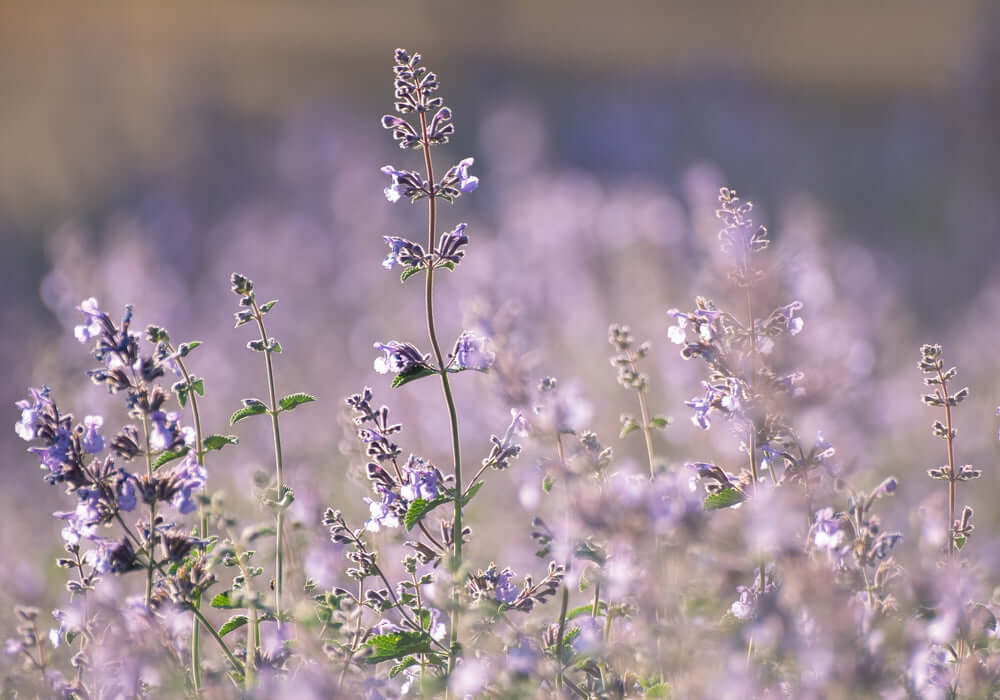The muscatel sage (Salvia sclarea) is an absolute eye-catcher in the garden with its purple-white lip flowers and the reddish to purple bracts. It is also an insider's tip as a medicinal plant, and the essential oil is particularly popular with women.
Healing properties and use in aromatherapy
Clary sage was already cultivated in the early Middle Ages. Hildegard von Bingen valued the medicinal herb as an elixir to aid digestion, against loss of appetite and to cure gastrointestinal disorders. Its name probably derives from the fact that winegrowers used the plant to flavour wines to make them taste like the expensive muscatel wine. Muscatel sage has antiseptic, anti-inflammatory, flatulence-relieving, calming and astringent properties. This is mainly due to rosmarinic acid and the essential oils it contains. The medicinal herb is often used to treat wounds, digestive disorders, urinary tract and menstrual problems.
Due to its stimulating and at the same time balancing effect, muscatel sage is also becoming increasingly popular in aromatherapy. Its fragrance is tart with a hint of lemon. Used homeopathically and in aromatherapy, clary sage has antibacterial, analgesic, astringent and tonic effects. Due to its intense odour, the essential oil can be used diluted as a room spray or in a diffuser.
Applied externally to acupressure points or used for massage purposes, clary sage oil has an almost euphoric effect. Massaging it into the soles of the feet in particular is said to raise energy.
Clary sage for women
Women with an irregular cycle, an unfulfilled desire to have children, PMS, postpartum depression and menopausal symptoms find a natural helper in clary sage. The "women's oil" contains the phytoestrogen sclareol, whose oestrogen-like effect balances the hormone balance. Period pains and cramps are also said to be relieved with this oil. As the Journal of Alternative and Complementary Medicine reported in the July/August 2006 issue, women who massage their abdomens with an aromatic oil based on clary sage have significantly fewer menstrual cramps. Even birth pains could be alleviated by clary sage, as the journal Complementary Therapies in Nursing and Midwifery reported in 2000.
Traditionally, the flowers and leaves of the plant are infused as a tea. To do this, pour one to two teaspoons of clary sage flowers or leaves over a cup of boiling water and steep for ten minutes. Both the essential oil and the flowers and leaves of clary sage can be used for health purposes.
As a tea cure with optimal effect, take one to three cups daily for six weeks. If you have any further questions about the effects of clary sage, our pharmacists at the Saint Charles Pharmacy in Vienna or Berlin will be happy to advise you.







